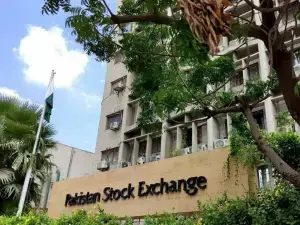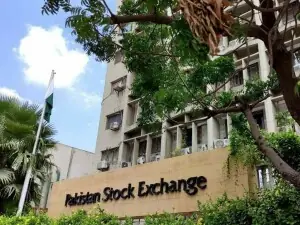Oil fell $2 Wednesday as Opec agreed to keep pumping near full throttle despite high crude stocks in the United States. Opec President Edmund Daukoru confirmed there will be no change to the group's 28 million barrel-per-day production ceiling as the Organisation of the Petroleum Exporting Countries works to bring prices within consumers' comfort zone and fill supply disruptions.
The US government reported subsequently that crude stockpiles in the world's largest energy consumer surged last week to the highest since May 1999, when the price of crude was about a quarter of its current level.
"The downside looks wide open at this point," said Tim Evans, senior oil analyst at IFR Energy Services. "We've got lots of inventory, and world-wide supply is going to continue to grow into the year."
US light crude fell $2.03 to $59.55 a barrel by 1620 GMT, bringing losses for the week to $4. London Brent crude traded $1.55 lower at $59.62 per barrel.
Opec, which pumps more than a third of the world's oil, has made a commitment to ensure ample supplies amid export disruptions from Nigeria and Iraq, and simmering tensions between the West and Iran over its nuclear ambitions.
"If we send completely the wrong signal prices could get out of control, so we have chosen a roll over," Opec's Daukoru, who is also Nigeria's oil minister, said.
The market drew some support from a warning by Iran's national security official that Tehran would review its oil export policy should the UN Security Council tackle its case on nuclear research.
"If the United States wishes to choose that path, let the ball roll," senior Iranian national security official Javad Vaeedi told Reuters in an earlier interview. Washington accuses Iran of wanting to build a nuclear bomb. However, Iranian Oil Minister Kazem Vaziri said Tehran had no intention of reducing oil exports.
US Under-secretary of State Nicholas Burns said the UN Security Council will take up the issue of Iran's nuclear program next Monday or Tuesday.
"Later this week the geopolitical risk premium should increase and push us higher," said Dariusz Kowalczyk, senior investment strategist at CFC Securities in Hong Kong. "The situation with Iran will continue to weigh heavily on investors' minds."
Oil traders fear any punitive action could prompt Iran to cut supply. However, the International Energy Agency, the co-ordinator of emergency oil stocks, has said it could safely fill a gap left by a possible Iranian crude embargo.
In Nigeria, militant attacks have sharply curbed the Opec member's exports since February. However, Nigeria says most of its supply would be back within weeks.
Adding to geopolitical worry, an oil worker strike in Ecuador slashed the South American nation's crude production by three-quarters as police clashed with protesters demanding better conditions and full-time jobs.
BR100
16,307
Increased By
236.2 (1.47%)
BR30
51,537
Increased By
1163.4 (2.31%)
KSE100
157,953
Increased By
1775.7 (1.14%)
KSE30
48,199
Increased By
520.5 (1.09%)






















Comments
Comments are closed.